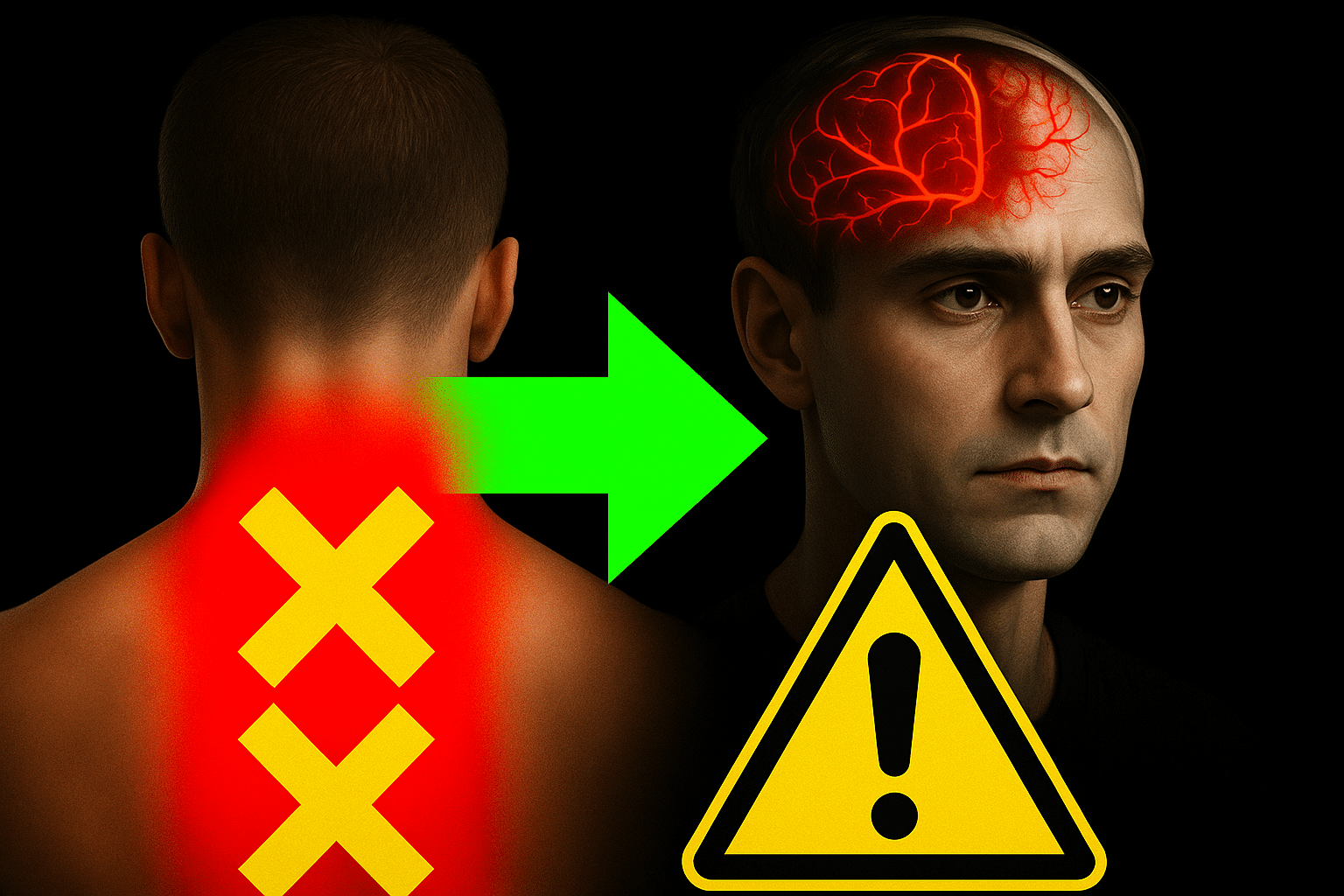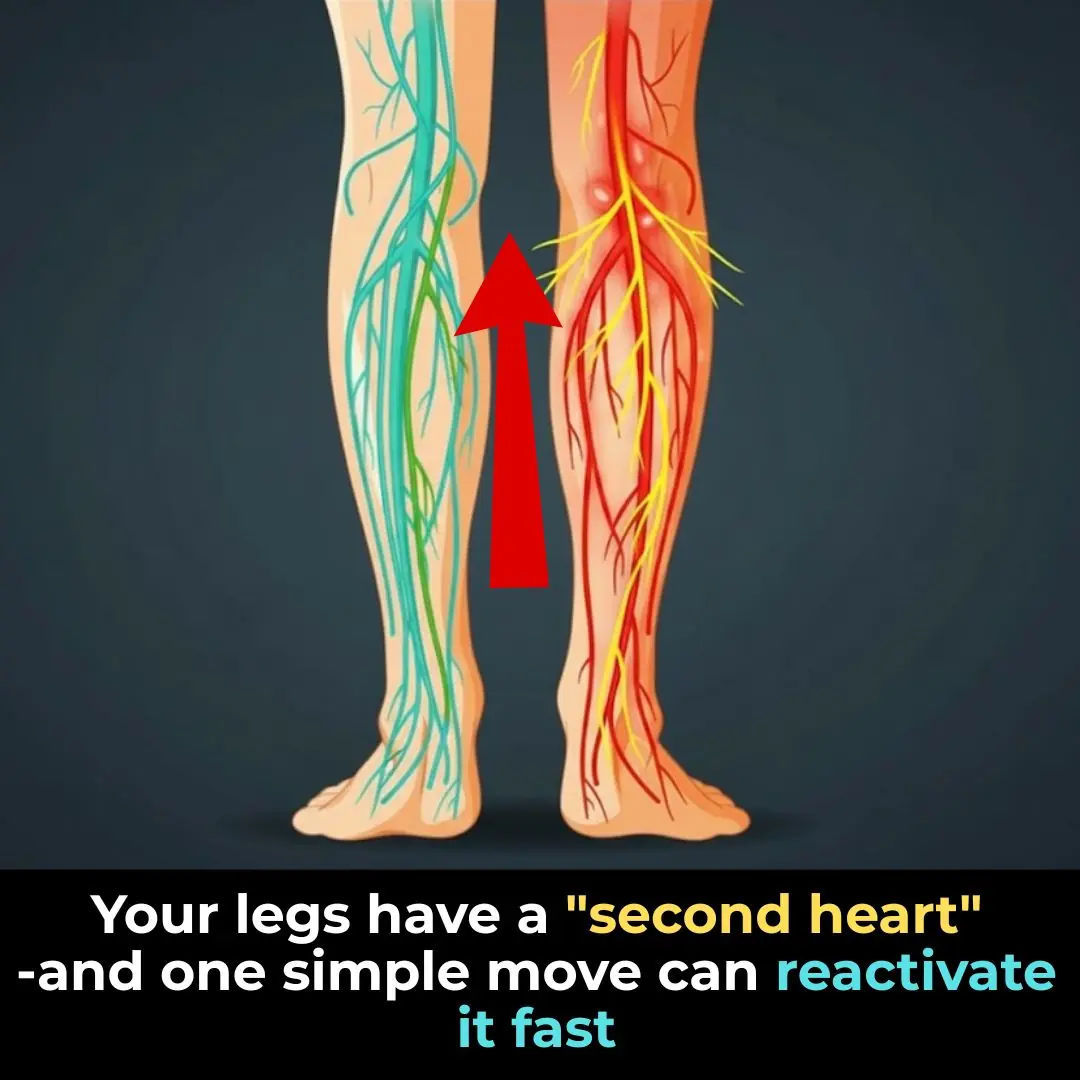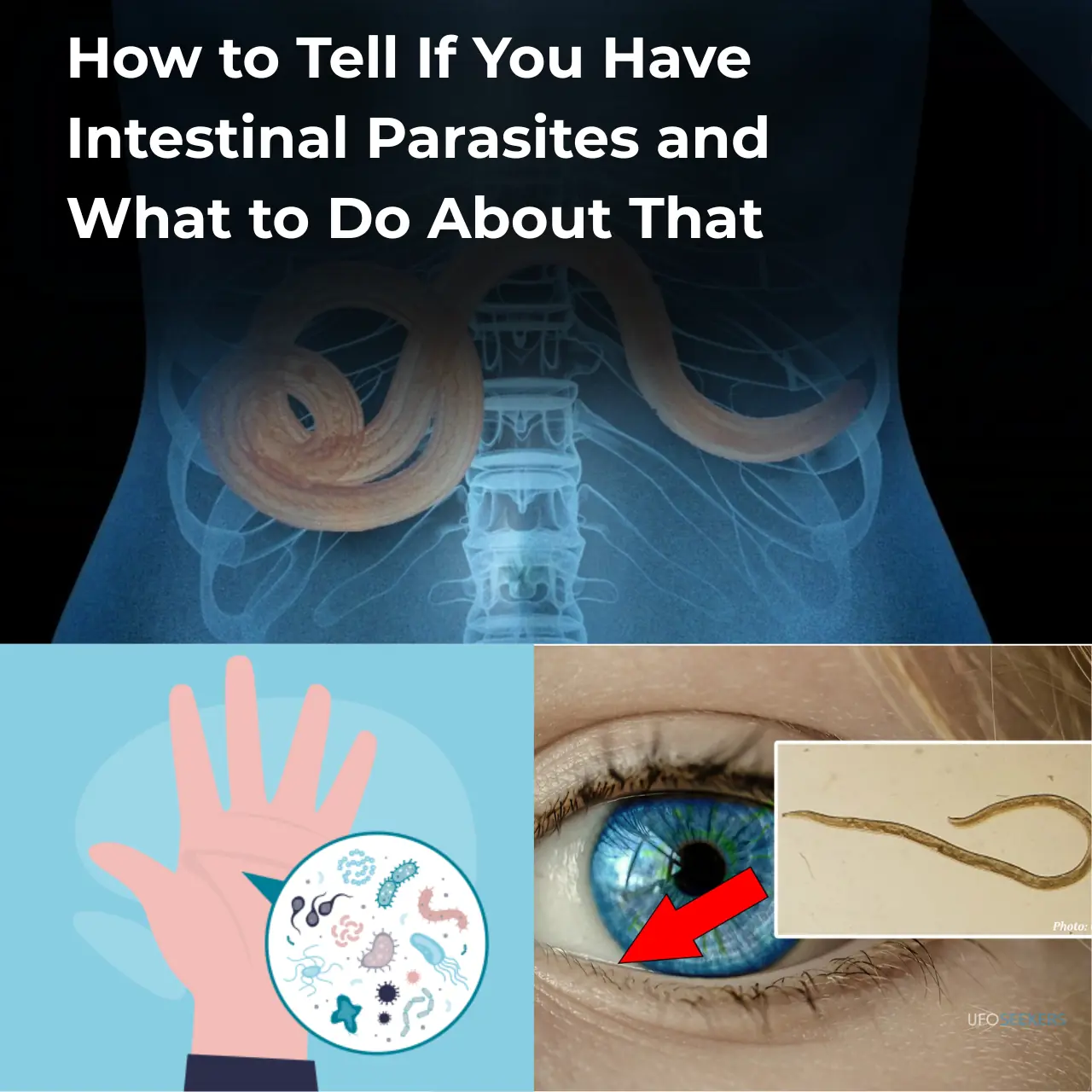
9 cancer warning signs your body is sending you (don’t ignore these!)

Pay close attention — your body is talking to you all the time. Every ache, twinge, or strange new symptom is part of that communication. Most of the time, these signals are harmless responses to stress, fatigue, or minor illness. But sometimes, your body sends subtle warnings that something much more serious may be developing beneath the surface.
Among the most important of these possibilities is cancer — a disease that often begins quietly, long before it causes severe symptoms. The earlier you recognize the warning signs, the greater your chances of successful treatment and recovery. Ignoring them, on the other hand, can allow a hidden problem to progress unnoticed.
This article breaks down nine key cancer warning signs your body might be trying to send you. Think of it as a practical guide to becoming more observant and proactive about your own health. Remember: knowledge is power, and awareness could very literally save your life.
(Insights adapted from Dr. João Sorio, oncologist and medical researcher.)
Key Takeaways
-
Listen Carefully: Persistent or unexplained changes in your body’s normal functioning should always be taken seriously.
-
Common Doesn’t Mean Harmless: Symptoms such as unusual weight loss, severe fatigue, or ongoing digestive changes can sometimes be signs of a deeper issue.
-
Look for the Unusual: Unexplained bleeding, recurrent pain, new lumps, or night sweats are red flags that require prompt medical evaluation.
-
Early Detection Saves Lives: Identifying cancer early often makes the difference between full recovery and a much harder battle.
1. A New or Growing Lump in Your Neck (Possible Thyroid Nodule)
One of the most easily overlooked signs of cancer is a new lump or swelling in the neck. This is particularly important because the thyroid gland — located at the base of the neck — can sometimes develop nodules that may be cancerous.
Most thyroid nodules are benign (noncancerous), but a growing or unusually firm lump should never be ignored. Sometimes you may notice it when swallowing, or a doctor might detect it during a routine exam.
If this happens, your physician will likely recommend:
-
A thyroid ultrasound, to evaluate the size, texture, and features of the lump.
-
Blood tests to check thyroid hormone levels.
-
In some cases, a biopsy to determine whether abnormal cells are present.
Catching thyroid cancer early is crucial, as most forms are highly treatable when diagnosed promptly.
2. Unexplained Bleeding or Blood Clotting
This warning sign is actually two extremes of the same problem — bleeding when you shouldn’t and clotting when there’s no reason.
Unexplained bleeding can take many forms:
-
Blood in your urine or stool
-
Coughing up blood
-
Vomiting that looks like coffee grounds
-
Bleeding between menstrual cycles or after menopause
Cancers such as those of the kidney, bladder, stomach, colon, uterus, or lungs can damage tiny blood vessels as they grow, leading to bleeding that seems random.
The opposite issue, unexplained clotting, can be equally concerning. Some cancers release chemicals into the bloodstream that make it more likely to form clots (a condition called thrombophilia). If you develop a deep vein thrombosis (DVT) — a clot in the leg — without a known trigger such as surgery, trauma, or long travel, doctors may investigate for an underlying malignancy.
Unrecognized clots can break off and travel to the lungs, causing a pulmonary embolism, a potentially life-threatening emergency. Never ignore unusual bruising, bleeding, or swelling in your legs.
3. Sudden, Unintentional Weight Loss
Losing weight without trying may sound appealing — until you realize how often it’s linked to serious disease. Physicians consider unexplained weight loss of 10% or more of your body weight within six months a red flag.
Cancer can cause this in several ways:
-
Metabolic overdrive: Tumor cells consume large amounts of energy.
-
Appetite suppression: Changes in hormones or inflammatory chemicals reduce hunger.
-
Digestive interference: Tumors in the stomach, pancreas, or intestines can impair absorption of nutrients.
While conditions like diabetes, thyroid disorders, or chronic infections can also cause weight loss, it’s critical not to assume the cause. Persistent, unintentional weight loss demands professional evaluation — including imaging and laboratory testing — to rule out cancer.
4. Persistent and Debilitating Fatigue
Everyone feels tired sometimes, but cancer-related fatigue is different — it’s deep, unrelenting, and not relieved by rest. You might wake up exhausted, find simple tasks draining, or notice that your stamina has drastically declined.
One major culprit is anemia, a shortage of red blood cells that carry oxygen throughout the body. Some cancers, particularly of the digestive tract or bone marrow, can cause anemia by chronic internal bleeding or by interfering with blood cell production.
Common symptoms include:
-
Pale or yellow-tinged skin
-
Dizziness or shortness of breath
-
Brittle nails and hair loss
-
A rapid or irregular heartbeat
A simple complete blood count (CBC) can detect anemia. If it’s present without a clear cause, further investigation is essential.
5. Changes in a Mole or New Skin Lesion
Your skin is often the first place cancer makes itself visible. Melanoma, one of the most dangerous skin cancers, often begins as a mole that changes in shape, color, or size.
Use the ABCDE rule to evaluate moles:
-
A – Asymmetry: One half doesn’t match the other.
-
B – Border: Edges are uneven, blurred, or scalloped.
-
C – Color: Multiple colors (brown, black, red, blue).
-
D – Diameter: Larger than 6 mm (about the size of a pencil eraser).
-
E – Evolving: Any change over time — size, shape, texture, or sensation.
Also watch for itching, bleeding, or crusting. If a mole looks different from your others or continues to change, see a dermatologist immediately. When detected early, skin cancers — even melanoma — can be treated with excellent outcomes.
6. Persistent Changes in Bowel Habits
A consistent change in your bowel pattern is one of the clearest warning signs of colon or rectal cancer. Don’t assume it only means diarrhea — it can also mean:
-
New or worsening constipation
-
Alternating diarrhea and constipation
-
Pencil-thin stools
-
Blood or dark, tarry stool
-
Persistent abdominal cramping
-
A sensation that your bowels don’t completely empty
Colon cancer develops slowly, often over years, beginning as small polyps that eventually turn malignant. The best way to detect it early is through colonoscopy, which can remove precancerous growths before they turn dangerous. If you notice changes lasting more than a few weeks, get checked.
7. Swollen Lymph Nodes Without an Infection
Lymph nodes act as filters for your immune system. They swell during infections — such as colds or strep throat — then return to normal once the infection clears.
However, persistent, firm, and painless swelling in the neck, armpit, or groin should raise concern. This can signal:
-
Lymphoma, a cancer that begins in the lymphatic system itself.
-
Metastatic spread from another nearby cancer (like breast, lung, or head and neck cancers).
Lymph nodes that grow larger over time, feel hard or immobile, or appear without any clear infection need medical evaluation. Early diagnosis dramatically improves treatment outcomes.
8. Pain That Gradually Worsens
Pain is your body’s alarm system — but when pain becomes progressive, it’s time to listen carefully. Cancer-related pain typically worsens over time because a tumor presses on nerves, bones, or internal organs.
Unlike acute pain from an injury, this pain doesn’t fade and often grows resistant to usual painkillers. Examples include:
-
Headaches that become more intense or frequent (possible brain tumor).
-
Bone pain that worsens at night (possible bone metastasis).
-
Abdominal or back pain that persists for weeks.
Never assume chronic pain is “just aging.” Any progressive pain deserves investigation through imaging and lab work to identify the cause.
9. Recurring Fevers or Severe Night Sweats
Fevers are your body’s defense against infection — but persistent, unexplained fevers may point to a systemic problem. Cancers such as leukemia and lymphoma can cause continuous low-grade fevers or drenching night sweats that soak clothing and sheets.
This occurs because some cancers produce inflammatory molecules that disrupt your body’s temperature regulation. Even if you feel otherwise fine, this symptom combination warrants a full medical workup.
If you regularly wake up drenched in sweat or experience fevers without infection, don’t dismiss it. Your body is waving a red flag.
Conclusion: Listen Early, Act Early
Your body is an extraordinary communicator — it constantly provides feedback about your internal health. These nine signs don’t automatically mean you have cancer, but they are signals that deserve your full attention.
Don’t ignore persistent or unusual changes. Keep a health journal if needed, track how long symptoms last, and share detailed information with your doctor. Even if the cause turns out to be benign, you’ll have taken an important step in protecting your long-term well-being.
When it comes to cancer, early detection is everything. Awareness, curiosity, and timely medical attention can truly make the difference between a small scare and a life-saving discovery.
Your body is speaking — make sure you’re listening.
News in the same category


Proven Health Benefits and Uses of Thyme and Thyme Tea

Your legs have a “second heart” — and one simple move can reactivate it fast

Doctor warns: your ‘healthy’ lemon water habit is actually destroying your liver – here’s what you’re doing wrong

How to Tell If You Have Intestinal Parasites and What to Do About That

2026’s hottest health drink: A natural boost for blood pressure and diabetes

This Salt, Pepper and Lemon “Miracle-Mix” Can Help Solve 9 Problems

Scientists Discover The Maximum Age a Human Can Live To

Signs of Arthritis You Shouldn’t Ignore

The Life-Changing Effects Of Adding Just A Pinch Of Baking Soda To Your Water

WHAT HAPPENS WHEN YOU EAT 3 WHOLE EGGS EVERY DAY — THE RESULTS MAY SURPRISE YOU

Remove This from Your Home to Live Longer

This Ancient Seed Oil May Calm Knee Pain Better Than Tylenol, Study Finds

This Common Vitamin Deficiency Could Be Raising Your Colorectal Cancer Risk — and Half the World Is Affected

Lower Blood Sugar Naturally by Training Just Two Leg Muscles

Forget Aspirin — This Everyday Fruit Could Protect You from Stroke and Heart Attack

Garlic, honey, and cloves – a powerful natural remedy packed with health benefits

Anyone Whose Hair Is Falling Out Needs To Make This 2-Ingredient Drink Immediately
News Post

BBC EastEnders fans 'floored' after realising Junior Knight actor's real age

The White House Communications Office is saying our story is not true. We stand by our story. Our story is accurate.

D4vd's Friends Thought He Was Celeste Rivas' Boyfriend, Thought She Was 19

Netflix's Being Eddie release date and what to expect from the Eddie Murphy special

Man Builds “Museum Of Love” To Honor Late Wife’s Memory

MAFS UK's Julia-Ruth issues statement after 'three husbands' bombshell

Strictly star Harry Aikines-Aryeetey addresses ‘heartbreaking’ elimination: ‘It’s nice to go out on a party’

Seven Types of Pain You should Never Ignore

Proven Health Benefits and Uses of Thyme and Thyme Tea

Stop throwing out old plastic food containers

6 things that mice are very afraid of

Your legs have a “second heart” — and one simple move can reactivate it fast

Doctor warns: your ‘healthy’ lemon water habit is actually destroying your liver – here’s what you’re doing wrong

Why You Shouldn’t Rush to Fold the Bed When Checking Out of a Hotel

You are doing it all wrong. Here's the right way to boost your immunity naturally

My ear feels clogged all the time, but nothing comes out. No wax of fluid. Doctor appt is far away. What could this be?

Wow, I never knew this!

How to Tell If You Have Intestinal Parasites and What to Do About That
